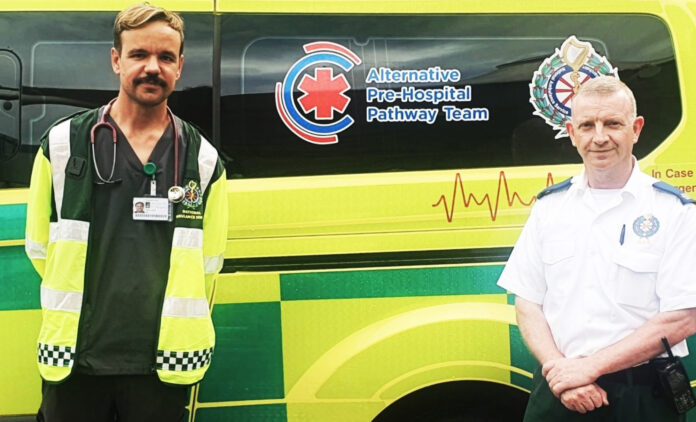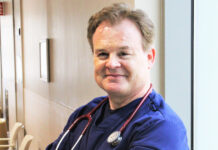
A NEW collaboration between UL Hospitals Group and the National Ambulance Service has been launched in Limerick and will bring emergency doctors to the patient when they dial 999/112 in many cases.
The new approach aims to cut down on the number of patients who have to be brought by ambulance to emergency departments, where they may face very long waits to be seen and may not need to be admitted.
In some critical cases, it will also mean that emergency doctors travel to the patient.
The Alternative Pre-Hospital Pathway (APP) involves specialist emergency medicine doctors and NAS personnel responding to low-acuity ambulance calls.
This service started in Limerick on September 11 and is initially operating from 10am to 6pm Monday to Friday.
The APP team responds in a NAS vehicle to appropriate calls within a 45-minute radius of the ambulance centre in Limerick City.
The APP team will respond to low-acuity ambulance calls in the community, provide definitive care directly, or refer patients on to the appropriate community or specialist service.
Where the APP team is the nearest available resource, they may also be despatched to care for or assist pre-hospital colleagues in caring for critically unwell patients in the community.
The Emergency Department at UHL receives more emergency ambulances than any other hospital in the country and the APP service will, where appropriate, reduce the number of patients arriving by ambulance.
Hospital management says this will both improve patient experiences and free up valuable emergency ambulance resources for critically ill or injured patients.
The APP team comprises an emergency medicine specialist registrar (SpR) or registrar and an emergency medical technician (EMT) or paramedic in a NAS response vehicle.
Commenting on the introduction of the service, Dr Damien Ryan, Consultant in Emergency Medicine and Clinical Director of the Urgent and Emergency Care Directorate at UL Hospitals Group, said: “This service will allow emergency doctors to attend to patients in the community, who have called for ambulance transport, where their need for hospital care is deemed low.”
“This will potentially obviate the need for that patient to come to hospital. Advice can be provided regarding the most suitable options for further care in the community, if necessary, and in some circumstances care can be provided directly at the scene.”
Niall Murray, General Manager of Area Operations at the National Ambulance Service, added: “The National Ambulance Service is moving from an Emergency Medical Service (EMS) to a Mobile Medical Service (MMS) which aims to deliver the right patient care in the right setting. The Alternative Pre-hospital Pathway (APP) team is a bespoke model of pre-hospital healthcare delivery which complements the national shift toward integrated community care.
“Increasing demand for emergency care and an aging population is necessitating a re-design of traditional models of emergency care delivery and the Alternative Pre-Hospital Pathway (APP) Team is one such response.”










